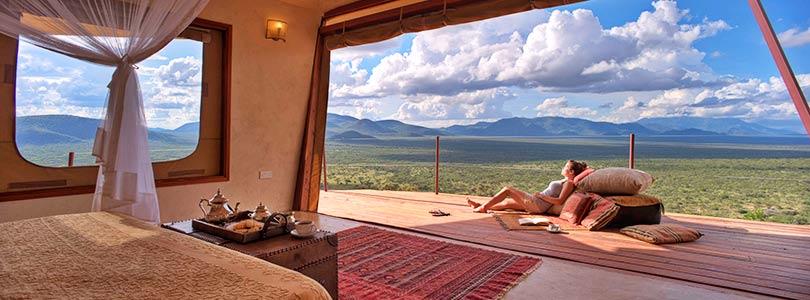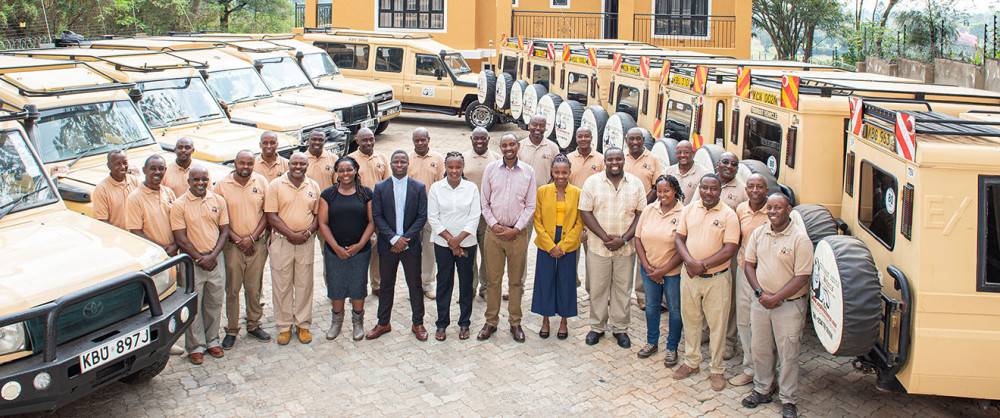Recommended Reasons To Choosing Mombasa Watamu Snorkeling
Recommended Reasons To Choosing Mombasa Watamu Snorkeling
Blog Article
What Are The Safety And Security Considerations I Should Be Aware Of While Traveling To Mombasa In Kenya?
When holidaying in Mombasa, Kenya, being mindful of security and safety aspects is essential for the most enjoyable and hassle-free holiday. Here are some important tips to remember:
1. General Safety
Stay up-to-date with local news as well as any travel advisory that are issued by the country you live in.
Register with Your Embassy: If applicable, register at your consulate or embassy in Kenya to assist you in case in an emergency.
2. Health Precautions
Check for vaccinations: Ensure that you're up-to-date on routine vaccinations and consider additional vaccines such as Hepatitis A, Hepatitis B, Typhoid and Yellow Fever.
Mombasa is a malaria-prone region and, is best avoided. Utilize insect repellent and antimalarial medicine, sleep in mosquito nets, and dress in long sleeves at night.
Food and Water Safety Drink only water that is bottled or that has been boiled. Avoid eating ice cubes, and eat foods that are well cooked. Be aware when you eat street food.
3. Personal Safety
Be cautious when walking in the dark. Stay in areas that are well lit and well-populated. Beware of walking in darkness on the beach or in areas with a secluded.
Protect Your Values Secure Your Valuables: Use hotel safes to store passports, cash, and other important items. Do not display expensive items such as electronics or jewelry.
Make use of reputable transportation: Choose for certified taxis, ride-hailing companies, or transport arranged by your hotel. Beware of cars that are not marked.
4. Local Laws and Customs
Respect Local Culture: Dress modestly, especially when visiting religious places. Be aware of the customs and practices in your area.
The Kenyan laws on drugs are very strict and punishable by severe penalties. Avoid all involvement in illegal drugs.
Photographers should always ask for permission before taking pictures of military personnel or government structures, particularly in rural areas.
5. Beach Safety and Water Safety
Be Safe Be aware of local advice about swimming conditions and currents. Use designated swimming areas.
Marine Life: Be mindful of marine wildlife like jellyfish and urchins. Walking along the beach requires appropriate footwear.
6. Crime Prevention
Petty crime: When there are a lot of areas, bag-snatching or pickpocketing may be a possibility. Stay alert and close to your valuables.
Scams: Beware of strangers offering overly generous help or deals that appear too good to be true. Use only tour operators who are licensed.
Emergency Contacts: Learn the local emergency numbers such as Police (999) and Fire (999) as well as Ambulance (999). Contact information for the embassy or consulate of your nation should be kept in a handy place.
7. Natural Hazards
Weather: Mombasa experiences a tropical climate. The possibility of heavy rainfall and flooding are possible, especially during rainy season. Be aware of weather forecasts.
Sun Protection Use sunscreen and wear a hat to avoid sunburn.
8. Travel Insurance
Comprehensive coverage. Make sure that the travel insurance you purchase policy includes insurance for emergencies with medical significance, theft and loss, as well disruptions in travel. Verify that your policy includes protection for any activities you are planning to undertake, such as water sports.
You'll be able enjoy your trip in Mombasa with peace of mind if you keep these security and safety guidelines in your mind. See the recommended island snorkeling in mombasa for more advice including kenya tours, kenya safari tours, travel tours in kenya, mombasa travel agency, tour company in kenya, safari and tours, mombasa tours, tour mombasa, kenya tour operator, travel tours in kenya and more.
What Are The Weather Considerations Should I Know Before I Travel To Mombasa, Kenya?
Understanding the local weather patterns will allow you to pack appropriately and maximize your holiday. Here are the most important aspects of the weather.
1. Climate Overview
The climate in Mombasa is tropical and humid throughout the through the year. Temperatures typically range from 24degC to 32degC.
2. Seasons
Hot and Humid Season (November to April) This time season is marked by high temperatures and humidity. The peak tourist season is December and January.
Long Rains: (April-June) The rainy season is marked by heavy rainfalls and thunderstorms. Roads may become muddy making it difficult to travel. This is the off-season for tourism.
Cooler season (June to Oktober) The temperature and humidity are at their lowest at this time. The weather is generally pleasant and perfect for outdoor sports.
Short Rains (October October - November) Short Rains (October - November): These are brief, less intense rainshowers. The rains will usually be only for a short time, but will be followed with a few sunny days.
3. Tips for packing
Lightweight clothes: To stay cool and dry in the humid climate Pack lightweight, breathable clothes such as linen or cotton.
Rain gear: If you are you're traveling during the rainy seasons take a waterproof jacket as well as an umbrella and waterproof footwear.
Sun Protection: Apply sunscreen with an SPF of high. Wear a broad-brimmed hat and sunglasses. Wear light clothes that cover the skin.
Swimwear is essential for the beach and the hotel pools.
4. Weather-specific activities
Beach Time: The best time to be at the beach is in the cooler months (June-October), when the weather and sea conditions are pleasant.
The crystal clear, calm waters from November through March is the perfect time to snorkel, diving and other water sports.
Wildlife viewing: As the weather gets better and the sun is shining, it's a perfect time to go on safaris and safaris and wildlife tours.
5. Health Considerations
Hydration is crucial during this humid and hot weather. Drink plenty of water, particularly when spending time in the outdoors.
Health-related illnesses that are related to heat: Be aware of the risk of heat exhaustion and heatstroke. Wear loose clothing and frequent breaks in the shade. Avoid intense activity during peak heat.
6. Travel Adjustments
Travel during the rainy seasons Be prepared for delays in travel when you travel during this period. There may be instances where roads are closed and outdoor activities are restricted.
Flight Delays: Tropical rains can sometimes cause flight delays. Be aware of your travel plans and make contingency plans.
7. Environmental Considerations
Natural Hazards. Be aware of the risks caused by heavy rainfall. Be aware of weather conditions and take the local warnings regarding safety.
Be aware of tides. They can be unpredictable and can significantly impact beach activities. Consult the local tide schedules when planning beach activities and swimming.
If you know what to expect from the weather in Mombasa, you can better organize and plan your trip, pack securely, and enjoy a safe time. Read the best park funzi for blog examples including kenya tour operator, kenya africa travel, safari and tours, kenya tours and travel, african safari excursions, kenya safari holiday, beach in mombasa, tour firms in kenya, kenya safari and beach packages, kenya mombasa holiday packages and more.
What Environmental Responsibilities Do I Have To Be Aware Of When I Am In Mombasa, Kenya?
Being environmentally responsible when on holiday in Mombasa is essential to protect the beauty of the place and its rich biodiversity. Consider these environmental responsibilities:
1. Sustainable Accommodation
Eco-friendly Hotels: Select hotels that are committed to sustainable development. Find eco-labels, certifications and certificates, for example Ecotourism Kenya.
Join hotel initiatives to promote conservation of water and energy. Reuse linens and towels Turn off lighting and air conditioning when being used.
2. Responsible Wildlife Viewing
Respect Wildlife. Avoid disturbing animals by ensuring that there is your space secure and them. Be sure to follow the instructions of your tour guide.
Do not feed wild animals. Feeding wildlife may disrupt their natural behavior and eating habits.
Leave No Trace. Do not litter in Wildlife Reserves or Parks. Bring your trash home and properly dispose of it.
3. Plastic Reduction
Beware of single-use plastics. Bring a reusable bottle of water as well as a shopping bag with utensils.
Help local initiatives in your area. Participate in beach clean-ups at your local beaches or other organizations working to lessen the impact of plastic pollution.
4. Water Conservation
Mombasa suffers from water scarcity. Shut off the faucets and take shorter showers.
Eco-Friendly Products: Use biodegradable and eco-friendly toiletries to lessen the impact of water pollution.
5. Energy Conservation
Reduce energy consumption. Reduce the usage of of air conditioning and unplug all electronic devices in the event that they aren't being used.
Help support renewable Energy - Choose accommodation and tour operators that use renewable energy.
6. Sustainable Transportation
Reduce your carbon footprint using public transport options, such as matatus or buses, as often as possible.
Eco-Friendly Options: Consider renting bikes or walking short distances. There are some areas that offer eco-friendly tuktuks.
7. Helping to support local economies
Buy Local: Purchase items such as souvenirs or food items, as well as crafts from local vendors and artisans to help the local economy.
Fair Trade: Select products that have been deemed fair trade in order to ensure that local producers receive a fair compensation.
8. Environmental Education
Learn and Share. Educate your self about the local environmental issues and conservation efforts. Share what you learn with your friends and family members to spread awareness.
Respect local cultural practices Learn and be respectful of local customs within the realm of environmental conservation.
9. Marine Conservation
To ensure that you're taking your snorkeling and diving in a safe manner Avoid touching coral reefs, or even stepping onto them. Be sure to safeguard marine life using reef-safe sunscreen.
Waste Disposal: Don't dump trash into the ocean. Be a part of or help with marine conservation programs.
10. Ethical Souvenirs
Avoid products that are made from wildlife. Avoid purchasing products that are made from endangered species such as tortoiseshell and ivory.
Sustainable Materials: Choose souvenirs that are made from recycled or sustainably produced materials.
11. Join to participate in Conservation Activities
Think about becoming a volunteer participating in local tourism or conservation projects.
Support local NGOs. Give money to NGOs or conservation organizations working to safeguard and conserve the environment.
12. It is a good idea
Travel in small groups to minimize environmental impact.
Eco-Tours. Select tour operators who are committed to sustainable practices and follow environmentally friendly practices.
When you keep these responsibilities to the environment in your mind, you will be able to help preserve Mombasa's natural resources, and ensure that the beauty and diversity of the area are preserved for future generations. Follow the best kisite mpunguti marine for site examples including travel tours in kenya, safari and tours, trips to kenya africa, kenya africa travel, mombasa travel agency, kenya tourism, mombasa tours, tours and travel company in kenya, safari and tours, african safari kenya and more.